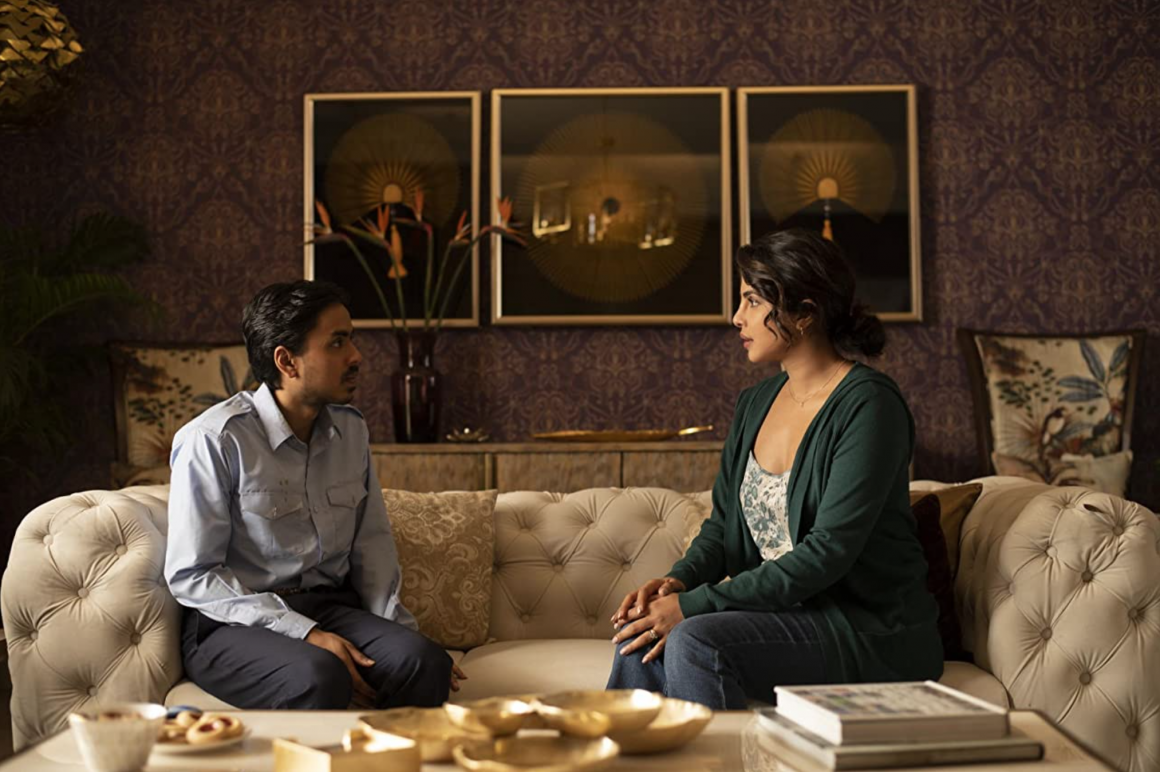
Ramin Bahrani’s The White Tiger: Poverty is a rooster coop
By Krishna Shetye, February 9 2020—
A rooster coop — this is the definition of the poor man’s blight in India for Balram Halwai, the narrator and underdog in Ramin Bahrani’s new film The White Tiger. So sealed are they into their position in society, that they watch their fellow roosters get slaughtered, making no attempts to escape. Instead, they wait patiently in line for the same fate to befall them.
Of course Balram, brilliantly played by newcomer Adarsh Gourav, being the personification of the titular white tiger, refuses to be damned to such a pitiful, purgatorial existence. He flees his village of Laxmangarh rather than be forced into a cyclical system enforced by his authoritative grandmother to marry, produce children and wait for death. Balram’s ambition to become the driver for a wealthy landlord’s son is achieved as he is hired to drive the son, Ashok, and his new wife Pinky, who have freshly arrived from the United States.
The character of Pinky, played by Priyanka Chopra Jonas, was one that I somewhat related to, but at the same time despised. A first generation Indian-American, she clawed her way out of her own American rooster coop — a family run bodega in NYC — to become a successful doctor. She inspires Balram to look past his career as a driver and seek more success in his life. However, beyond her shock and horror at the verbal and physical treatment Balram endures, she is just as bad, if not worse, in her acceptance of his servitude.
Unfortunately, Balram naively believes that Pinky and Ashok are his family. However, when they throw him under the bus for a heinous crime he didn’t commit, he realizes that he will never gain their true respect as a human being. Gourav’s acting as Balram offers a masterclass in the portrayal of pain, heartbreak and eventual insanity. Even as the character begins to crack and murderously scheme to escape his new purgatory, I couldn’t help but root for this disturbed version of an underdog.
Part of the horror I felt while watching this movie was a reflection of my own experiences when visiting India. Seeing the poor children begging but learning to ignore them, offering guilty smiles to the house help as I watched them sweep the floors or offering food to the poor sitting outside temples. Of course I was a foreigner in my own country of birth, having been raised in Canada so who was I to change things or start a revolution?
After deep contemplation however, I realized it was just the same here in Canada. Even rushing to my university classes I used to rush past the homeless teenagers at the train station asking for spare change or on a good day stop and offer loose coins. I’ll admit feeling guilty as I passed them, but what good did it really do? More importantly, what more could I or anyone who observes the effects of crushing poverty do rather than accept the rooster fate of other human beings? How can we chastise poverty in third world countries when we ourselves are so accepting of its existence on our own streets?
Truly, Bahrani’s twisted version of a rags-to-riches film illuminated a global issue of the enormous disparities between the rich and the poor or in this case, the masters and servants. According to Balram’s employers, the abuse is necessary to maintain one’s privilege in society. The growing ignorance of Pinky and Ashok becomes disgustingly transparent as Balram becomes disposable or rather, realizes that he is disposable.
The climatic scene where Balram finally escapes his hellish reality is shocking yet satisfactory. As he becomes the white tiger he was destined to be, Balram begins changing the system around him in his new position of power. He uses his privilege to positively progress society, a mission that almost justifies his bloody actions. Balram’s character itself profoundly changes as his position in society elevates. As he narrates his tale to the Premier of China he now confidently preaches that the “future of the world lies with the yellow and brown man.” Ironically, Balram’s future was secured by the fall of another brown man, indicating that perhaps the future lies with those who are ambitious and brave enough to escape the rooster coop society has forced them into.
I’ve understood Balram’s tale to be a universal criticism of poverty and of the social systems that enforce it. Be it Canada, the United States, or India, the rooster coop barrier is one of humanity’s construction and the choice is ours, either to be like Pinky — ignorant to the point of negligence about the brute dehumanization she enables — or to fight for people like Balram, who can only escape the torturous cycle by way of dishonesty and crime.
